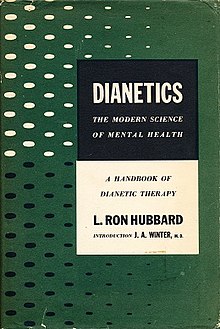How Dianetics can Save You Time, Stress, and Money.
Wiki Article
Dianetics - The Facts
Table of ContentsGetting My Dianetics To WorkThe Greatest Guide To DianeticsSome Known Details About Dianetics Dianetics - An Overview
I could not ever before not intend to receive anything that comes to mind for you- if it was otherwise, I would not be sitting here with you, doing this. I not just might never have a problem, or otherwise wish to hear something that comes to mind for you, yet I'm entirely excited to know every concept, every thought, every photo or sensation that emerges or shows up for you- do not ever assume or else, and if for some reason you do, please simply allow me know! Sometimes, you might have a thought, and photo, concept or incident turn up that does not seem to address the concern, or connect to it, yet nonetheless, constantly do tell me about it, and as we proceed, the relevance will certainly emerge for you.This is inherent in the basis of handling, and the subject of this conversation: the basic duties of the counselor and the customer: The basic duty of the counselor is, unlike "common training", not to manage, which means to impose and/or inhibit, however to rather work from the basis of EMPOWERING THE CUSTOMER.

The Best Guide To Dianetics
John Mcmasters shared this basic reality wonderfully well in among his talks on Power processing, where he explains exactly how he was asked what this "unique knack" was that he had for providing such terrific sessions; he needed to believe concerning that for a minute, and identified that it was what he had not been doing, in addition to what he was doing: he had not been assessing, evaluating, computer, or as a matter of fact, creating any kind of thoughts, not to mention verbal expressions, after offering the command and while awaiting the PC to complete their response to their satisfaction; he was, just and just, existing with the PC, and completely interested.The duty of the therapist, showed; that was his "unique flair". I have actually had my own experience which instructed me this well, extremely early in the game. In 1982, having recently completed my training and internship on New Era Dianetics, I was running this on a PC, and there was a factor in the session where (being a little bit damp behind the ears not yet having lots of hours under my belt as an expert auditor) the computer seemed to be "taking too long" to express anything verbally after I offered him a command.
This key ended up being one of the most useful contribution that John ever made to the topic of treatment or auditing (Dianetics). In my humble opinion, it is the best why not try these out payment that any person has actually ever made to these subjectsthe application is completely non-judgemental, non-evaluative, and without any type of tip, recommendations or opinion.no preconditioned program for people, or 'degrees' that they should do
In Scientology we prided ourselves on not reviewing for people. All that really suggested was that the auditor did not VERBALLY review for the PC in session.
The Only Guide for Dianetics

Anybody that had ever before seen John audit could not assist but observe an unique top quality in his auditing."The customer's basic duty is to be there with the objective of relocating in the direction of their spiritual objectives, and to freely and completely share and experience whatever materializes for them in addressing the questions and implementing the instructions in the handling.
This is something to procedure as needed. Additionally, people often have previous experience and/or brainwashing in auditing/processing which, in some means, and to some degrees, actually misinforms them right into perspectives, ideas and behavior patterns that avoid the complete awareness of these duties, and so they will certainly often tend to inhibit the expressing of what comes to mind, as in the examples given above - Dianetics. * The very first, and maybe foremost examples of mis-indoctrination resulting in less than totally smooth recommended you read and efficient sessions, can be discovered in particular facets of the training regimens, or "TR's":"TR's" are typically an individual's very first, or at least early, experience in Scientology, and while I will go on to discuss what I see as the defects in idea and method, nonetheless, have a tendency to be considerably healing, done as they are offered (Hubbard firmly insists that "TR's are not refining, they are educating", yet factually, they are both handling AND training)
Alan Walter made similar observations, and improved these with his "Presence Processes". There is no "failing", and no rejection of the truth of this being processing. The focus, as it needs to be, gets on experiencing the other person's visibility. All the indications which obtain a "flunk" in doing "TR-0" are simply the being's initiatives to withstand the other individual's visibility, and instead of being bothered and badgered with "Flunk", which enforces "failing!" on the being, one just requires to be motivated to "stick their feet in the water a little deeper", to increasingly restore their ability and readiness to completely share and experience "being right here", or "presence", with others.
See This Report on Dianetics

Report this wiki page